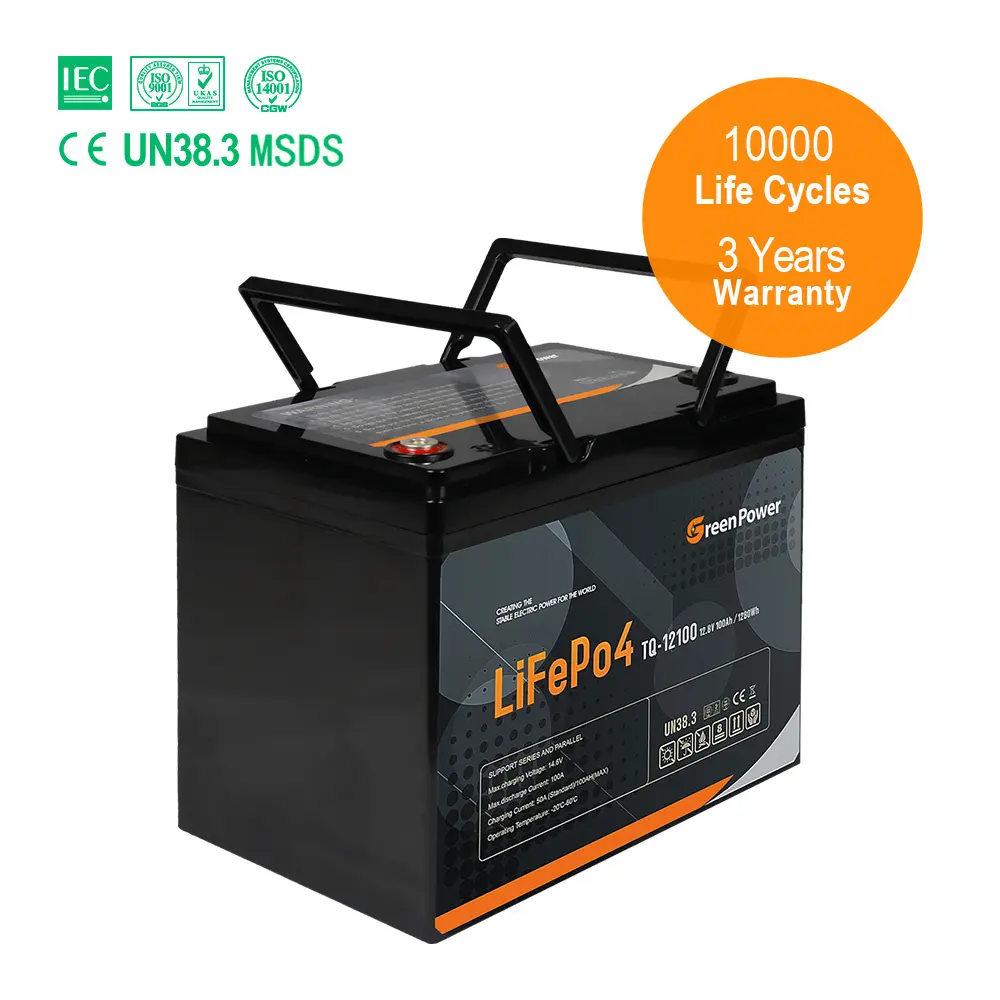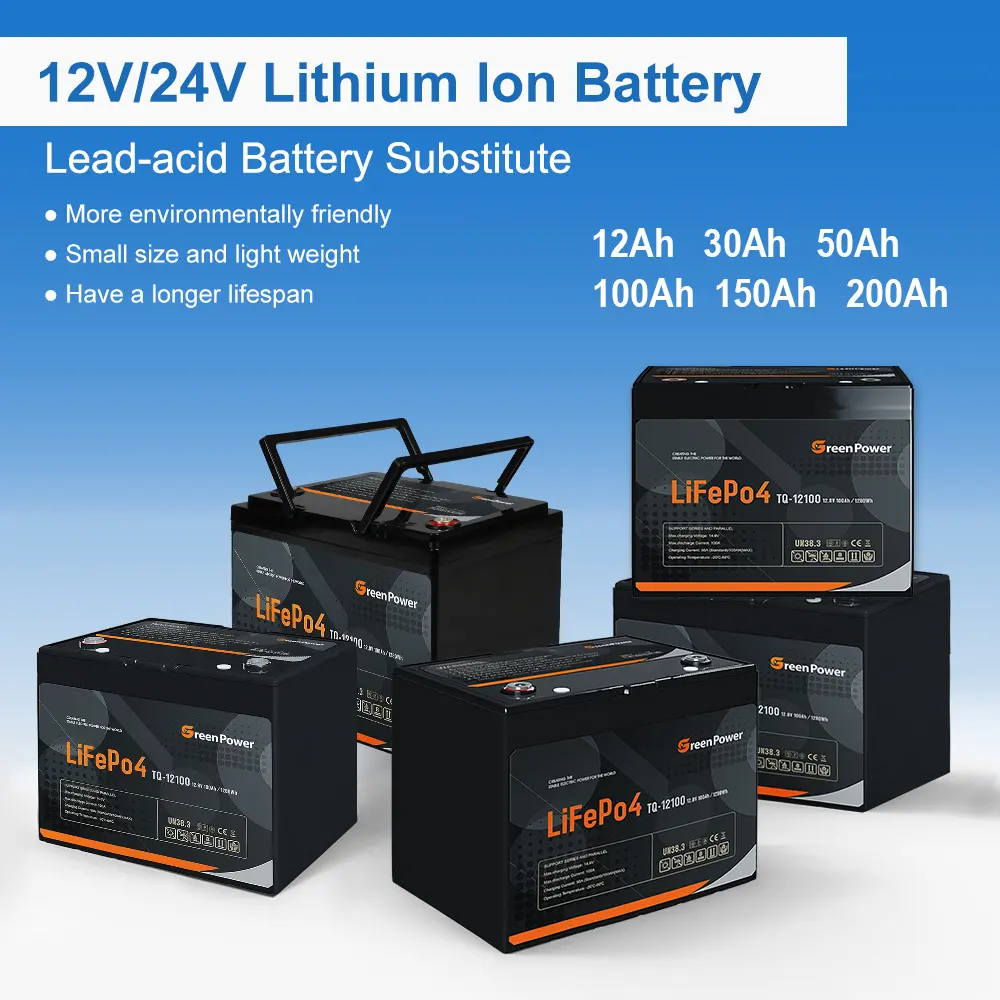የአሁኑ የፎቶቮልታይክ መፍትሄዎች ውስጥ የኢነርጂ ማከማቻ ዋና ሚና
የዓለም አዲስ የኃይል ምንጭ ወደ ማስተዋል ሲያንቀሳቅስ፣ የፎቶቮልታይክ ኃይል የተዳርጆ ኃይል ኢላማ ለመፍጠር ዋና መፍትሄ ሆኖ ተነጻጻገ። ነገር ግን፣ የፎቶቮልታይክ ኃይል የማይቋረጥ ባህሪ ትልቅ ጉዳት ይፈጥራል - ሰማይ አይነት 24/7 አይታይም። እዚህ ነበር ባትሪ የፎቶቮልታይክ ሰልፍ ማከማቸው ለመጠን አስፈላጊ ነው፣ የማይቋረጥ ኃይል ምንጭን ወደ ጥራት ያለውና ተስማሚ የሆነ የኃይል አቅርቦት ለመቀየር እንዲያገለግል ያደርጋል።
ባትሪ የማስቀመጫው ቴክኖሎጂ የፎቶቮልታይክ ኃይል አካባቢን አስተዋውቀዋል፣ የቤት ባለቤቶችንና የንግድ ኢንስታላዎችን የማስቀመጫ የመብራት ጥበቃ ለማከማቸት እና ለመጠቀም የሚያስችለው በሌሊቱ ጥቅም ላይ ወይም በብርሃን ያልተሞላበት ቀን ላይ ነው። ይህ ቴክኖሎጂ ፈጠራ የፎቶቮልታይክ ኃይል ዋናው ገደብ አድርጎታል፣ እንዲህ አይነት ቴክኖሎጂ በተለይ በተገቢ የሆነ የባህር ኃይል ምንጭ ላይ የተመሰረተ ነው።

በሶላር ስርዓቶች ውስጥ የባትሪ ማከማቻ ቴክኖሎጂ ግንዛቤ
የሶላር ባትሪ ማከማቻ መፍትሄዎች ዓይነቶች
አሁኑና የሶላር ኢነርጂ ስርዓቶች የተለያዩ የባትሪ ቴክኖሎጂዎችን በመጠቀም እያንዳንዱ የተለያዩ ጥቅሞች አሉት። ሊቲየም-አዮን ባትሪዎች የኢንዱስትሪ ገበያ ግዴታ ሆና በመገለገያ ላይ እየሄዱ ናቸው በተመጣጣኝ የኢነርጂ እፍጋት፣ በረጅ ዕድሜ እና በቀንሰ የሚቀነስ ዋጋ ምክንያት። እነዚህ የተሻሉ የማከማቻ መፍትሄዎች በተለይ የብረት-አሲድ ባትሪዎች ጋር ሲወዳደሩ በተሻለ አፈፃፀም ይሰጣሉ፣ በተጨማሪ የማይቆርረው የመጠሪያ ጥቅማጥቅም ይሰጣሉ።
ፈሳሽ ባትሪዎች እና ጥንካሬ ሞገድ ባትሪዎች ያሉ ተጨማሪ ቴክኖሎጂዎችም እየታየ እና እየተሻለ የማስታወቂያ እና የረጅም ጊዜ ጥራት ማቅረብ ይጠይቃሉ። እነዚህ ሁኔታዎች የባትሪ ማከማቻ የፀደይ ሃይል ስርዓቶች ዋጋን እየቀነሰ እና ተወዳዳሪነታቸውን እና አፈጻጸማቸውን እየሻለ ይቆያሉ።
የፀደይ ባትሪ ማከማቻ እንዴት ይሠራል?
የፀደይ ባትሪ ማከማቻ ስርዓቶች የኃይል መቀየሪያ እና ማከማቻ የተሟላ ሂደት በመጠቀም ይሰሩታል። በፀደይ ቀናት ጃፓን የሚመነጩት ኃይል በቀጥታ የሚያገለግል ሃይል ይፈጥራል እና የሚቀና ሃይል ባትሪውን ይሞላል። ይህ የማከማቻ ሃይል የሚያገለግል ጊዜ የፀደይ ማመንጫ ይቀንስ ወይም ይቆማል፣ ይህም ኃይል በተከታታይ ለመቅረብ ይረዳል።
የባህሪያዊ ቴክኖሎጂ ውህደት እነዚህን ሥርዓቶች አውቶማቲክ የኃይል ግንባታ እንዲቆጣጠር ያደርጋል፣ ለከፍተኛ ቅልጥፍና ለማድረግ የባትሪ አሞሌና መበላሸት ዙሪያዎችን ማስተማርያ ያደርጋል። ይህ የባህሪያዊ የኃይል አስተዳደር ማከማቸው የተደረገውን ኃይል በተገቢው መጠቀም እንዲቻል ያደርጋል፣ የኃይል አጠቃቀምን በመቀነስ እና ለኢንቨስትመንቱ ከፍተኛ ተመላሽ በማቅረብ ያደርጋል።
የባትሪ ማከማቻ እና የፀ solar ስርዓቶችን ማዋቀር ጥቅሞች
የኢነርጂ ነጻነት እና የማይታወቅነት
የባትሪ ማከማቻ የፀ solar ኢነርጂ ስርዓቶች የማይታወቅ የኢነርጂ ነጻነት ይሰጣሉ። የፀ solar ኃይል በመቁረጥ ላይ ያለውን ኃይል በማከማቸት ቤተሰቦች እና ኢንተርፕራይዞች የግሪድ ላይ ያለውን ማዳዳ በከፍተኛ ሁኔታ መቀነስ ይችላሉ። ይህ ነጻነት በኤሌክትሪክ አቋርጦች ወይም በአደጋዎች ጊዜ በተለይ ዋጋ ይኖረዋል፣ ምክንያቱም የማከማቸት ኃይል ዋና ዋና ስርዓቶችን ለማስወገድ ይረዳ።
የማይታወቅነት አካባቢው በቀላል የኃይል አማራጭ ብቻ አይገ ограниዝም። የባትሪ ማከማቻ ሲሆን ተጠቃሚዎች ከሚነሳ የዩቲሊቲ ዋጋዎች እና የግሪድ ዋጋዎች የማይታወቅነት ይሰጣል። ይህ የነጻነት እና የማይታወቅነት ጥምረት የፀ solar ባትሪ ስርዓቶችን ለቤት እና ለንግድ ጥቅማጥቅሞች የተሻለ እድገት ያስገኛል።
የገንዘብ ጥቅሞች እና የተመለሰ ውጤት (ROI)
የስኳር ማከማቻ በሶላር ስርዓቶች ውስጥ የሚሰጡት የገንዘብ ጥቅማጥቅሞች ትልቅ ናቸው። በማምረት ጊዜ ሃይል ማከማቸው እና በከፍተኛ ደረጃ የሆኑ ጊዜያት ላይ ተጠቅሞ በስልጣናዊ ሃይል መብቶች መቀነስ በስትራቴጂክ ሃይል አስተዳደር በኩል ተጠቃሚዎች የሶላር ሀብታቸውን እንዲከፍተኛ ያደርገዋል።
በተጨማሪም በርካታ ክልሎች የማስተማር እና የተመለሰ ገንዘብ ማቅረብ ለማከማቸው የስኳር ማከማቻ ስርዓቶችን በመ lắp የገንዘብ ተመላሽን በተጨማሪ ለማሻሻል። የኤሌክትሪክ ገበያ አገልግሎቶች ወይም የሃይል ዋጋ ልዩነት ፕሮግራሞችን በመሳተፍ ተጨማሪ የገቢ መንገዶችን መፍጠር ይችላሉ፣ ይህም የሶላር የስኳር ማከማቻ ጠቃሚነቱን አጠቃላይ ዋጋ ማሻሻል ይደግፋል።
የአካባቢ ተፅዕኖና ዘላቂነት
የካርቦን አሻራ መቀነስ
የስኳር ማከማቻ ያለው የሃይል ስርዓቶች በካርቦን ማዕቀብ መቀነስ ላይ አስፈላጊ ሚና ይጫወታል። በሶላር ኃይል ተጨማሪ ጥቅም ላይ እንዲውል በመስጠት እነዚህ ስርዓቶች የፌሳ የነዳጅ ሃይል ሞገድ ላይ ያለውን ምዝገባ ይቀንሳሉ። የአካባቢው ተጽእኖ በከፍተኛ ብዛት የሚጠየቅበት ጊዜ ላይ በጣም አስፈላጊ ነው ምክንያቱም በዚዟ ጊዜ የኤሌክትሪክ ኃይል አቅራቢዎች በተለይ ላይ የካርቦን ብዛት የያዘ የጎን ኃይል ሞገዶችን ይጠቀማሉ።
የባትሪ ማከማቻ ስርዓቶች የአካባቢ ጥበቃ ጥቅሞች በጥራት የሚታወቁበት ጊዜ የማምረቻ ሂደቶች ከበፊቱ የተሻሉና የማንጠቀያ ፕሮግራሞች የተስፋፉበት ነው። ይህ የቴክኖሎጂ ቀድመኛነት የአለም አቀፍ የአየር ንብረት ጉዳት መከላከያ ላይ ትልቅ ጥቅም ያወጣል።
ግሪድ ሰላምత እና ማስተካከለኛ ቅደም ተከተል
የባትሪ ማከማቻን ለማጠራቀም ሰላማዊ ስርዓቶች ጋር የማዋሃድ ሂደቱ በኤሌክትሪክ ግሪድ ላይ የማረጋገጥ ሂደቱን ያፋጥናል፣ ምክንያቱም የሰላማዊ ኃይል የማይቋረጥ ባህሪን ያስተማማናል። ይህ የማረጋገጥ ችሎታ የኤሌክትሪክ ህይወት ውስጥ የአ renewable ኃይል ጥቅማጥቅምን ለማሳደግ አስፈላጊ ነው።
የቤቶችና የንግድ መስኖች በፓፋና የሚቆራረጡትን የሶላር ኃይል ማከማቻ ሲስተሞች እየተቀበሉ በጣም የሚጠቁ በኤሌክትሪክ ግሪድ ጥራትና በአዲስ የተሟላ የኃይል አካባቢ ውስጥ ያለው ተፅእኖ በጣም አስፈላጊ እየሆነ ተወላጅቶ ነው። ይህ የተለመደ የማከማቻ አውራድ የተሻለ የኃይል ግንባታ እና የሚቀጠል የኃይል መቆራረጫ ይፈጥራል።
ወደፊት የሚደረጉ ልማዶችና አዲስ ፍጠራዎች
ተክኖሎጂ ትንተና
የፓፋ ማከማቻ ቴክኖሎጂ የሚቀጥለው በቀጣይነት የሚታወቁ አካላትና የመሰረታዊ አካላት ውስጥ የሚታወቁ ምርመራዎች እየተካበቱ በጣም ጥ promising ነው። የአዲስ ዕቃዎች እና የማምረቻ ሂደቶች ምርመራ በማስታወቁያ ላይ በጣም የሚያሳይ አገልግሎት ፣ በህይወቱ ላይ እና በገማሽነቱ ላይ በጣም የሚያሳይ ተሻጂ በአገልግሎቱ ላይ እየተገኘ ነው።
የሚታወቁ ቴክኖሎጂዎች የሚናገሩት እንደ ጥቂት-ስቴት ባትሪዎች እና የተሻለ የሙቀት ማከማቻ መፍትሄዎች እንደሚያስተዋውቅ ይታወቃል እን ማከማቻ እና የፀ solar ሃይል ተጠቅሞ እንዴት እንደሚሆን። እነዚህ የሚታወቁ ነገሮች በባህርይ የማያያዝ ብዙ የማድረግ ችሎታ እና በፁሁ የፀ solar ሃይል ማከማቻ ስርዓቶችን እንዲሁም በተሻለ መንገድ የሚያድርጉት ይታወቃል።
የገበያ ዋና አቅጣጫዎች እና ቅድሚያዎች
የኢንዱስትሪ ባለሙያዎች የፀ solar ባትሪ ማከማቻ ገበያ ውስጥ በከፍተኛ መጠን እየጨመረ መሄዱን ይገልፃሉ እንደ ዋጋዎች በቀጥታ መቀነስ እና ቴክኖሎጂው ሲሻሻል። የአ renewable ሃይል ፖሊሲዎች ላይ የሚደረግ የተጨመቀ ጥረት እና የገበያ መደበኛ ማድረጊያ በዓለም ዙሪያ የመቀበል መጠኖችን በፍጥነት መጨመር ይጠበቅባታል።
ባትሪ አስተዳደር ስርዓቶች ውስጥ አባባል ግባዊነት እና መሽከርከር መማር ማዋቀሩ ትክክለኛ ማፈናቀል እና ሞላችን ለማሻሻል ይጠቅማል። እነዚህ ቴክኖሎጂካዊ ጥናቶች፣ እየለያዩ ያሉ የኃይል ገበያዎች ጋር በማዋቀር ፣ ለፀሐይ መተግበሪያዎች ውስጥ ባትሪ ማከማቻ ውስጥ ብሩህ የወደፊት ግብ ይታወቃል።
በተደጋጋሚ የሚነሱ ጥያቄዎች
ፀሐይ ባትሪ ማከማቻ ስርዓቶች በተለይ ስንት ዓመት ይቆያሉ?
አዲስ የፀሐይ ባትሪ ማከማቻ ስርዓቶች በተወሰነ ጊዜ ውስጥ በተሻለ መንገድ በ10-15 ዓመታት ይቆያሉ። ሊቲየም-አዮን ባትሪዎች፣ በፀሐይ መተግበሪያዎች ውስጥ በተለይ የሚጠቀሙት የባትሪ አይነት፣ በዚህ ጊዜ በኋላ የመጀመሪያው ችሎታቸውን 70-80% ይቆያሉ። የእውነተኛው የመቆያ ጊዜ ምክንያቶች ላይ የተመሰረተ ነው እንደ ጥቅም አይነቶች፣ የአካባቢ ሁኔታዎች እና የመቆያ መمارቶች።
ለፀሐይ መጠን ጣቢያ የባትሪ ማከማቻ ስርዓት መጠን የምንፈልገው ምን ያህል ነው?
የተገቢው የባትሪ ማከማቻ መጠን በተለያዩ ምክንያቶች ላይ የተመሰረተ ነው ፣ ይህም የቀን የኢነርጂ ፍጆታዎን ፣ የሰማይ ስርዓት መጠን እና የድጋፍ ኃይል ጥናቶን ያካመጥ። አብዛኛው የቤት ስርዓት 10-20 kWh የማከማቻ ችሎታ መጠን ሊኖረው ይችላል። የተገቢ ኢንስታላሮች የእርስዎን የተለያዩ ጥኾማዎች ማረጋገጫ እና በተመሳሳይነት የተገለጸ መጠን ያላቸውን ስርዓት ማመልከት ይችላሉ።
እንደገና የባትሪ ማከማቻ እቃዎቼን የሰማይ ስርዓት ላይ መጨመር ይቻላል?
አዎ ፣ በተለያዩ የዕቅድ ስርዓቶች ላይ የባትሪ ማከማቻ መጨመር ይቻላል። ግን በወቅቱ የሚተገበረው ኢንቬርተር እና የኤሌክትሪክ አቀራረብ ጋር የተመጣጠነ መሆኑን ማረጋገጥ አለበት። ለባትሪው ማከማቻ መጨመር በተገቢነት ለማስተዋወቅ ለስርዓቱ መደበኛ ለውጦች ጥቅም ሊኖረባቸው ይችላል።

